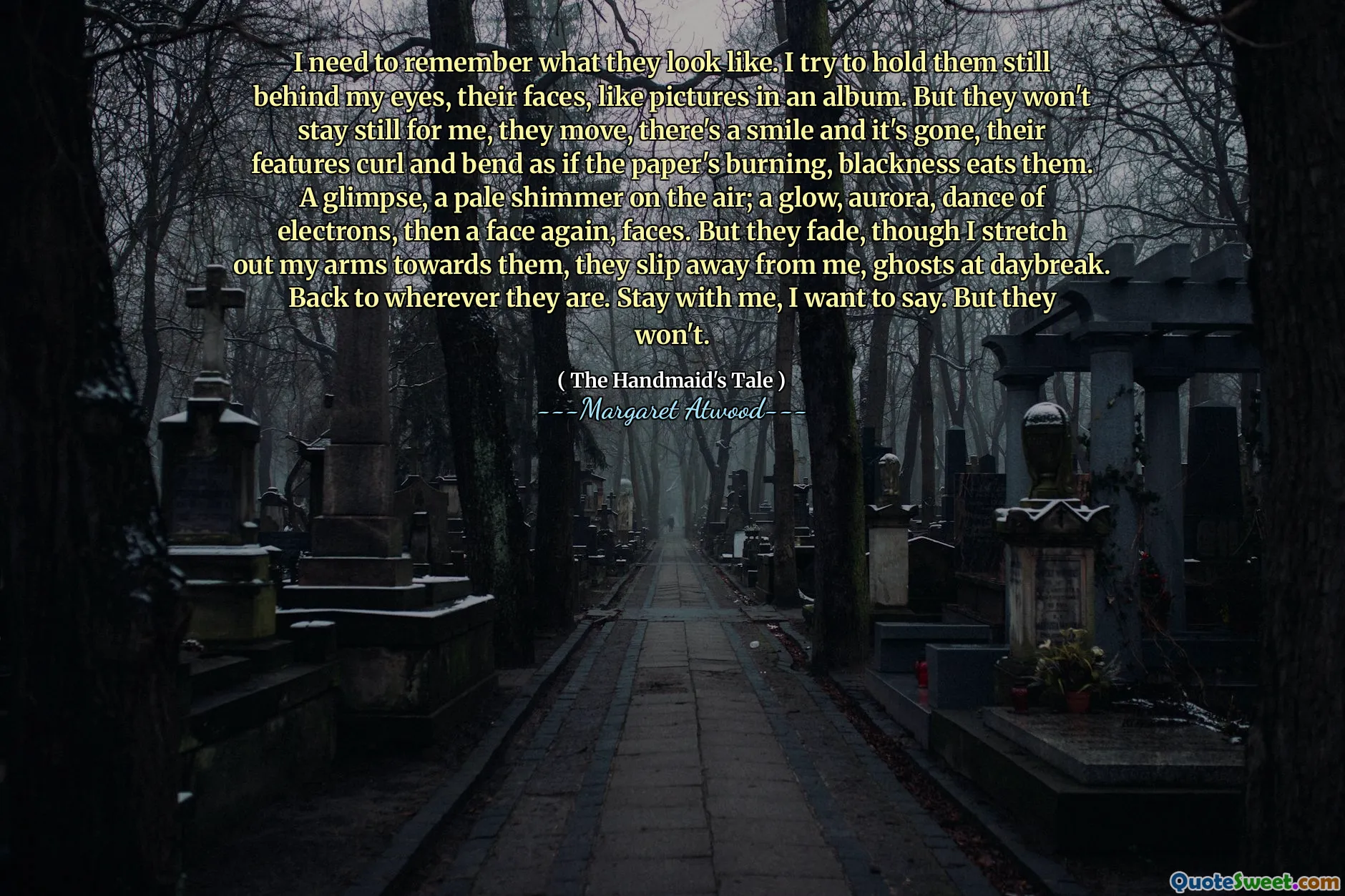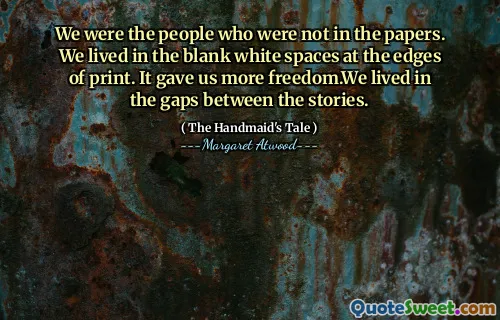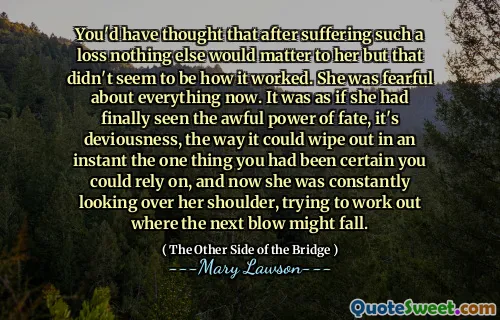
I need to remember what they look like. I try to hold them still behind my eyes, their faces, like pictures in an album. But they won't stay still for me, they move, there's a smile and it's gone, their features curl and bend as if the paper's burning, blackness eats them. A glimpse, a pale shimmer on the air; a glow, aurora, dance of electrons, then a face again, faces. But they fade, though I stretch out my arms towards them, they slip away from me, ghosts at daybreak. Back to wherever they are. Stay with me, I want to say. But they won't.
This passage profoundly captures the fragile nature of memory and the human struggle to preserve the faces and moments that define personal connections. The imagery employed conveys the instability of recollection—it is like trying to hold photos that distort and vanish, becoming intangible despite the deep yearning to grasp onto them. This evokes a palpable sense of loss and impermanence, embodying the anguish of watching memories slip away just when you are desperate to retain them. The metaphor of faces as "ghosts at daybreak" beautifully illustrates how memories can feel ephemeral and elusive, fading in the light of consciousness. This sensory, almost tactile battle to hold onto the past reflects a broader commentary on the human condition—the inevitability of change and the transient nature of identity and relationships. The speaker’s desperation and tenderness, expressed in the plea "Stay with me," highlight the emotional weight of memory not just as an intellectual act but a profoundly intimate and vulnerable experience. In the context of "The Handmaid's Tale," this quote resonates with themes of oppression, loss, and the power of memory as both a refuge and a site of unbearable pain. It elegantly encapsulates how memory acts as a bridge between the present and the past, nourishing hope, identity, and resistance, even amid dehumanizing circumstances.





